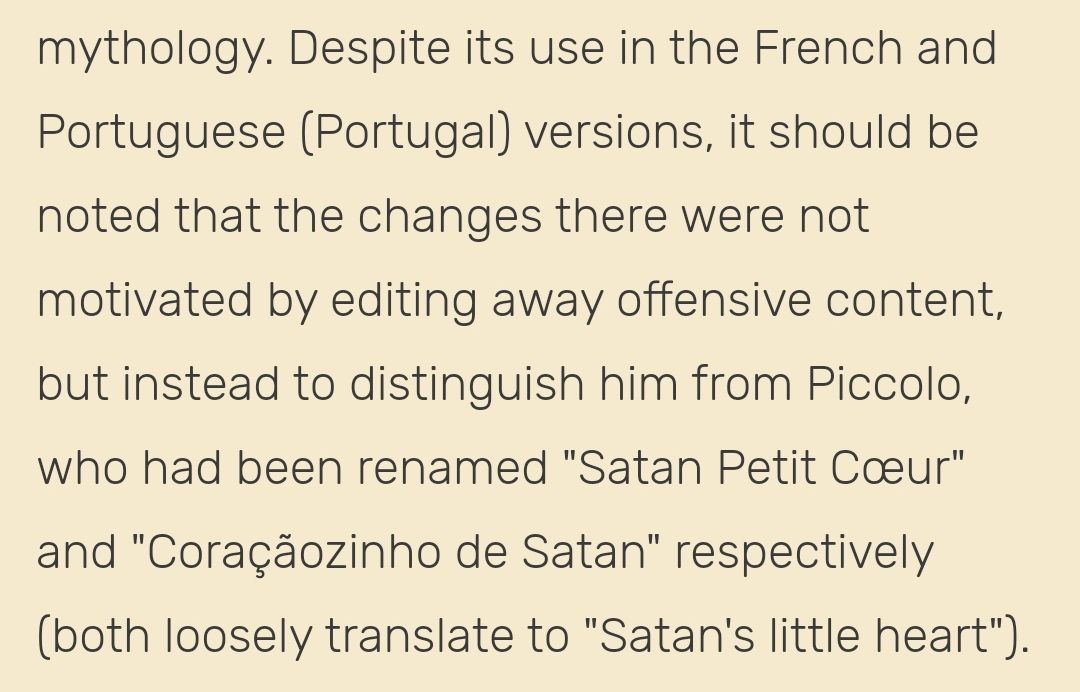this post was submitted on 01 Sep 2023
13 points (93.3% liked)
All things Dragon Ball 🐉
276 readers
1 users here now
A community for all things Dragon Ball, Dragon Ball Z, Dragon Ball GT, Dragon Ball Super, and Akira Toriyama!
Rules:
- Follow all https://lemmy.ml rules and the CoC
- No spoilers in the title
- No unmarked spoilers in the body or comments! You must mark them with Lemmy’s built-in spoiler tag and indicate in both the post title and the spoiler title what they pertain to (Manga chapters which haven’t been adapted yet, Anime episodes, etc.), as such.
- No NSFW posts
- All artwork must be credited to the original creator, whether in the title, post, or in a comment.
founded 3 years ago
MODERATORS
you are viewing a single comment's thread
view the rest of the comments
view the rest of the comments

If I had to take some educated guess:
Studio Novaga (the one behind the Portuguese dub) clearly didn't work with the source material, but instead decided to dub the French dub. (It's possible that they didn't have JP/PT translators, but got some FR/PT ones.) The French dub called him "Satan Petit Cœur", so gotta translate it literally, "Coraçãozinho de Satã", breaking further what's already broken.
Digging further on why the French studio went for "Satan Petit Cœur", I found this link. Basically, they might've found some non-existent pun, associating Pikkoro with both Italian "piccolo" (small) and Japanese "心"/"kokoro" (heart). And then trying to rationalise why the fuck someone clearly evil would be called "heart", they plopped some "aaah, he's Satan's Heart! Got it!".
A relevant detail here is that Piccolo's name only makes sense in the late episodes of the original Dragon Ball, where he was found alongside his children: Tambourine (Tamborim), Drum (Tambor), Piano etc., they're all musical instruments. However outside Japan, Dragon Ball Z is far more popular than the original Dragon Ball, and Piccolo appears right off the bat in DBZ, so it's perfectly possible that they had to translate his name before they had access to the context (his children).
In the meantime: studio Álamo (the one responsible for the Brazilian dub) identified the naming theme. Since the instrument can be called "flautim" or "piccolo" in Portuguese, they went for a "don't fix what isn't broken" approach and kept his name as Piccolo.
Dude, amazing research for the answer! Makes a lot of sense when you put it like that